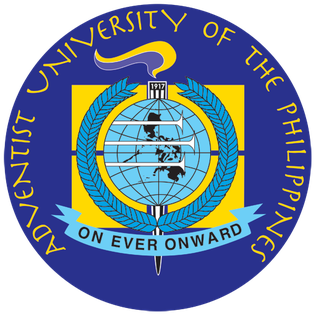Academic Term
June-October 1st Sem 2025
Proverbs 22:7: The rich ruleth over the poor, and the borrower is servant to the lender.

June-October 1st Sem 2025
| Label | Tag | Indicators | Subfield | Content |
|---|---|---|---|---|
| Leader | 000 | 02649nam a2200193 a 4500 | ||
| Date and Time of Latest Transaction | 005 | 20240222154110.0 | ||
| General Information | 008 | 070726s2004 000 0 eng d | ||
| Agency-assigned identifier | 035 | _a | (0000000000)91262 | |
| Agency-assigned identifier | 035 | _a | C4E1550C522543C6928718528E41E187 | |
| Main Entry - Personal Name | 100 | 1 | _a | Lastimoso, Mark L. |
| Title | 245 | 1 2 | _c | Mark L. Lastimoso. |
| Title | 245 | 1 2 | _a | A comparative study of the concept of judgment in the theology of John Wesley and James White / |
| Publication, Distribution, etc. (Imprint) | 260 | _c | 2004. | |
| Phys Description | 300 | _a | vii, 115 leaves ; | |
| Phys Description | 300 | _c | 28 cm. | |
| General Note | 500 | _a | Thesis (MA) - Adventist University of the Philippines, 2004. | |
| Summary Note | 520 | _a | There seems to be not much discussion in Adventist literature comparing James White's concept of judgment with that of John Wesley. This study attempts to compare their views. The main question this paper addresses is, what are the similarities and differences between their concepts about judgment? Finding the similarities and differences between their ideas will aid religious thinkers in understanding the theological position of the Seventh-day Adventist Church about the judgment. The method used in this research is historical investigation, which is descriptive. From the results of comparing James White's article "The Judgment" with John Whesley's sermons " The Great Assize" and "The Good Steward," an analysis was made. Similarities and differences were noted. The researcher found that John Wesley influenced beliefs concerning the need for an investigative judgment and believed that the final judgment takes place after the resurrection of all the dead. However, his idea of the starting point of the judgment differs from that of James White. John Wesley asserted that the judgment commences at the time of the parousia. James White carefully studied the investigative judgment and arrived at a different conclusion. He believed the judgment began in 1844. The connection between John Wesley and James White may be seen through a study of Josiah Litch's teaching about the pre-Advent judgment during the 1840s. John Wesley and James White's views concerning the judgment were greatly influenced by their individual backgrounds and their immediate evangelistic concerns. Although it cannot be directly established that John Wesley influenced James White, the similarities between their concept of judgment is sufficient to suggest a logical connection. | |
| Subj: Topical | 650 | 7 | _x | Comparative studies |
| Subj: Topical | 650 | 7 | _2 | sears |
| Subj: Topical | 650 | 7 | _x | James White. |
| Subj: Topical | 650 | 7 | _x | John Wesley. |
| Subj: Topical | 650 | 7 | _a | Judgment Day |
| Subj: Topical | 650 | 7 | _2 | sears |
| Subj: Topical | 650 | 7 | _a | Judgment Day |
| Subj: Topical | 650 | 7 | _2 | sears |
| Subj: Topical | 650 | 7 | _x | Biblical teaching. |
| Subj: Topical | 650 | 7 | _a | Judgment Day |
| Subj: Topical | 650 | 7 | _x | Comparative studies |
| Subj: Curriculum | 658 | _a | Master of Arts in Religion. | |
| Subj: Curriculum | 658 | _2 | local |